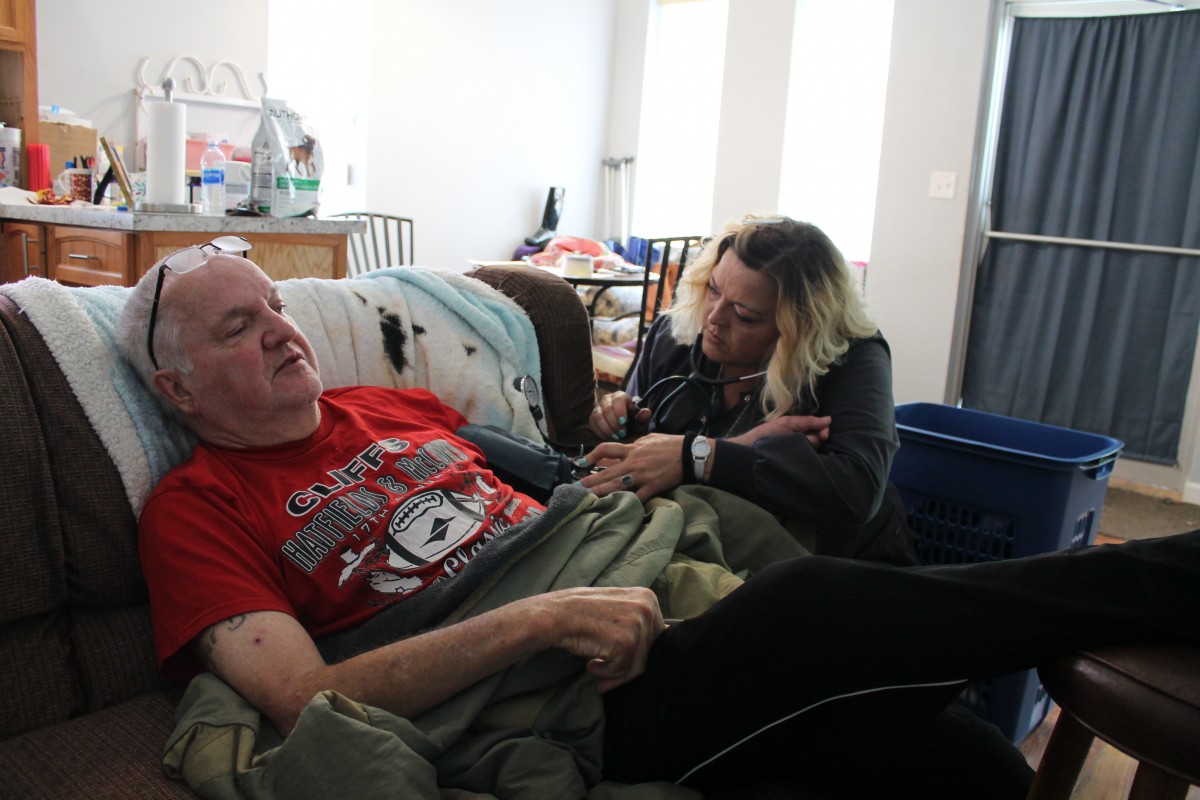In just a few short weeks, the daily lives of Americans have completely changed. Across the country schools, restaurants, bars, stores, libraries and more are closing. The phrase “social distancing” is now a part of our daily language. All of these measures are necessary to help prevent the spread of the novel coronavirus.
But those preventative measures don’t come without a cost. The impact of social distancing on the economy is just beginning to be understood, and already it is staggering.
While West Virginia and other rural parts of the country have fewer confirmed cases of the virus than urban centers like New York City or New Orleans (which may or may not be because of a lack of testing in those areas), our economy has still been greatly impacted. And that impact has been unlike anything we’ve experienced before.
West Virginia, specifically, was already showing signs of economic weakness before this crisis. The state lost more than 10,000 private sector jobs in 2019, with most of those losses coming in construction, manufacturing and mining. While other sectors of the economy weren’t as weak going into 2020, the effect of the coronavirus shock is broad-based and will likely be felt in every industry and geography. Still, workers in certain industries will be disproportionately affected— in particular, workers in food service, accommodations and brick-and-mortar retail. Workers in these industries make over 27 percent of West Virginia’s private sector employment.
Last month, West Virginia got a glimpse of how severe the economic impact could be for a rural state. More than 40,000 West Virginians filed initial unemployment benefits in the last full week in March. Since 1987, no more than 5,800 had ever filed in a single week.
Estimates show that West Virginia could lose 91,000 jobs by the summer. To put that in perspective, during the 2008 recession West Virginia lost 22,000 jobs– over the course of 15 months.
The impact from the coronavirus is not only greater than the impact from the last recession, it’s impacting working families more quickly and more directly.
The Great Recession and the bursting of the housing bubble hit the financial sector first, with a number of banks and other financial institutions going under. Over time the impact rippled through the economy, moving from the financial sector to construction then finally to the service sector. In fact, it took nearly two years from the beginning of the recession for West Virginia to experience any significant job losses at all.
This time, the impact has been immediate and has directly impacted working class jobs. Restaurants, bars, book stores, hair salons and countless other “non essential” businesses were shut down overnight. Thousands upon thousands of workers in West Virginia, many living paycheck to paycheck, found themselves out of work with little warning.
The risk of a severe, prolonged recession is very real as workers and families take a financial hit from the economic impacts of the virus. They will in turn have less income themselves to spend on a wide range of goods and services. The double blow of declining consumption could generate more widespread layoffs and likely lead to a number of business failures.
Which is why Congress moved so quickly, passing an unprecedented $2 trillion Coronavirus Aid, Relief and Security (CARES) Act. The bill makes major changes to state unemployment insurance benefits, provides fiscal relief to state and local governments, loans and aid to businesses and direct tax rebates to individuals.
Here’s how these provisions will affect working families specifically in West Virginia in the coming months.
Individual Rebates:
The CARES Act provides one-time checks (“recovery rebates”) of $1,200 for individuals making up to $75,000 a year, $2,400 for a married couple making up to $150,000 and an additional $500 per child. The payments are phased out for higher income earners. Overall, 96% of West Virginia households will be eligible for these rebates, receiving $1,830 on average per household.
In total, West Virginians will receive $1.87 billion in these recovery rebates and while these one-time checks will be helpful, there are no provisions in the legislation for additional payments down the road. Should poor economic conditions continue, Congress may have to consider additional measures to help these families.
Unemployment Benefits:
While the direct payments get most of the attention, one of the most significant components of the CARES Act is actually the expansion and increases to unemployment insurance. First, the bill increases unemployment benefits by $600 a week for the next 13 weeks, fully paid for by the federal government. In 2019, West Virginia’s average unemployment benefit was a modest $323 a week– the average weekly wage for workers in West Virginia is about $896.
This increase will help those workers laid off or unable to work due to the virus pay bills and make ends meet, replacing most, if not all, of their lost wages in the near term. The bill also lengthens the time an unemployed worker can receive regular benefits from the current maximum to 26 weeks to 39 weeks, but that extension doesn’t include the additional $600 per week.
Normally, there are an entire group of people who are not eligible for unemployment benefits because of the nature of their work, self-employment, furlough, or being a gig worker among them, as well as workers who have to quit their jobs because they have to care for someone who has COVID-19 or can’t afford childcare. But the CARES Act creates a new system for these workers to receive additional support. The Pandemic Unemployment Assistance (PUA) system provides half the average state unemployment benefits to this class of workers through December (in West Virginia, that’s about $162 a week) plus the $600 a week temporary benefits through July 31. PUA is paid for by the federal government.
The extra $600 a week will bring an estimated $223 million into West Virginia for jobless workers over the four month period, according to an analysis from the Century Foundation. Importantly, that supplement will not be counted as income for purposes of determining eligibility for Medicaid and the Children’s Health Insurance Program, helping ensure more unemployed people can receive those benefits.
These changes to unemployment benefits demonstrate how unique this situation is. Typically unemployment insurance is used to provide a small benefit to tide over workers who have lost their jobs while they look for a new job. Now we are seeing the system work in a new way, to help keep workers financially whole while they stay home and wait for the virus to be contained before going back to work.
Aid for Small Businesses:
Three-fourths of West Virginia’s private employees work for small businesses, or businesses that have less than 500 employees. In addition to the individual benefits, Congress included $349 billion in the CARES Act available as forgivable loans to small businesses if they agree not to lay off their employees. West Virginia has nearly 30,000 eligible small businesses meaning potentially millions more in aid coming into the state to secure the jobs of working class families.
Though the CARES Act will alleviate hardship for thousands in West Virginia, it will not fully protect workers and their families from the economic consequences of the novel coronavirus that Congress has done little to address.
Working families have the potential to be losing more than just a paycheck, but also their health insurance. Strengthening health coverage programs is crucial to letting people access needed health care during a public health crisis and preventing severe hardship during an economic crisis.
In the coming weeks, thousands of families will also turn to SNAP– the federal Supplemental Nutrition Assistance Program– for help putting food on the table. The Families First Coronavirus Response Act (approved by Congress in early March) gave West Virginia important flexibility to expand SNAP benefits, but these expansions are only available during the public health emergency, and it is very likely that the economic fallout from the coronavirus will far outlast the public health emergency. A temporary boost in SNAP benefits would not only help families but also effectively boost the economy.
The coronavirus pandemic threatens the lives and well-being of West Virginia, with the resulting closure of large sectors of the economy affecting jobs, income and the ability to meet basic needs in a way that we’ve never seen before. Proactive state and federal policy responses have been and will continue to be crucial to mitigate suffering, protect working families’ health and economic security and ease preventable vicious cycles in the economy.
Sean O’Leary is a Senior Policy Analyst with the West Virginia Center on Budget and Policy. Since joining the Center in 2010, Sean’s research and advocacy focus has been on working family issues, state and federal fiscal policy, and the state of West Virginia’s economy.



